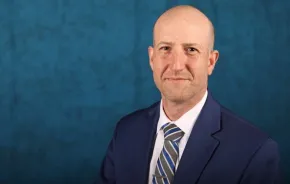How high school has turned into a college chase
Lakeside counselor Bruce Bailey has seen plenty of nervous college-bound students over his years at this prestigious private school. But he has a special name for the increasing panic tightening its grip with every passing year: the anxiety industry.
Even at one of Seattle’s public high schools, head counselor Wendy Krakauer knows exactly what Bailey means. She notices that some of the students and parents at Roosevelt High School seem to spend all four years in a complex strategic effort to win an admission letter they see as a prize.
“College is a match to be made, not a race to be won,” reads a sign on her office door. But the message is trickier to get across than one might think.
The current culture is making this rite of passage “a bigger deal than it is,” Bailey says. Much of the panic derives from parents fearing that their child will not get into the “right” college. Prestige may attract some parents, because they think that will prove they have done a good job for their child, or it will guarantee their child a great college experience. But neither of those things is necessarily true, Bailey and other counselors warn.
Parent Mary Preuss has seen two children through the college admission process. Her youngest child just graduated from a Seattle high school and will attend Santa Clara University this fall. In looking back, Preuss says she wishes “we had put less on their shoulders.” Both her children were good students and had many choices after graduation, but she saw the weight that the process itself put on each of them. Each felt required to take at least five or six advanced placement classes, which are college-level classes taught at some high schools.
She feels her family escaped a lot of the hype and tried to encourage each child to choose the style of education they truly wanted. But she feels the overall climate now encourages students to be almost obsessive about college.
High anxiety
Bainbridge Island counselor Joan Rynearson works with families as a private consultant to help shepherd them through the college admissions process. She’s been in business there for 12 years, and her staff has helped more than 500 families.
“About 80 percent of the students applying to college are applying to the same tiny 20 percent of colleges,” Rynearson says. That’s why the public feels that colleges are harder to get into than five or 10 years ago. There are many good colleges that fall just outside of that 20 percent, and they are not necessarily hard to get into.
Because of the anxiety, high schools have been increasing the rigor of classes they offer, she points out. They offer a wider variety of advanced placement classes, such as calculus and statistics. Rynearson and Krakauer agree that such classes are not for every student because they require extra hours of homework and culminate in high-stakes tests. But more and more average students are signing up, says Krakauer. “They think they need that on their transcript to apply to college.”
Students may feel compelled to sign up for test-preparation classes, some of which take eight to 10 weeks, just to clinch their ability to get a top grade on college entrance exams. Krakauer described a good student who took his exam and didn’t think the grade was high enough; he took a two-week rest, then resumed studying in order to retake the test a few months later.
Another way that college hype throws a shadow over high school shows up in club participation by students. Students are very careful about what they join and sometimes try to tailor activities to demonstrate the elusive “leadership” qualities they believe colleges want. But students seem so over-committed, says Preuss, that even those who volunteer to be secretary or treasurer may miss many meetings.
“They are sleep-deprived. They can’t keep up with what they are doing. It isn’t possible in 24 hours,” observes Rynearson.
Colleges market to students
Sophisticated maneuvering and “marketing” on the part of colleges themselves create part of the anxiety bubble, which, according to Bailey, will not burst anytime soon. To appear more selective, colleges market themselves widely. A larger pool of applicants makes their resulting selection a smaller percentage of the whole. For example, an elite college may admit only 5 percent of those who apply. If for some reason, fewer people applied to that college, the “selectivity” would seem to lower. So the college encourages many applicants, to keep its selectivity percentage low.
For students in high school, the desire to make choices according to a hypothetical perfect résumé may prompt them to give up whims or impulses in favor of maintaining consistency. For example, a tennis player may decide she can’t afford to branch out to another sport because she has to show excellence in a single sport for her college hopes.
One student was thrilled when counselor Rynearson told her she could quit the softball team without tarnishing her polished record. This young woman was a musician, athlete and volunteer, but she was reluctant to quit anything without her counselor’s assurances.
However, not all of this panic is bad, explains Bailey. He believes the self-reflection that is required of students as they try to project their own strengths is healthy.
“The more honest and open and complete they can be about themselves, the clearer the prescription in the lenses they use as they compare colleges,” Bailey explains. Self-reflection is key to knowing what matters most in potential colleges.
Everyone who commented for this story had positive stories to share about students who chose passion over perfection and comfort over competition. One Lakeside student aimed for prestige in the beginning of his search, but chose a small Midwestern campus after he visited. He told Bailey, “These are my people.”
Families may want to openly discuss the buzz and hype with their student far in advance of the key years of decision-making, so that they clearly separate their own parental expectations from what popular culture may trumpet. At some schools, counselors invite parents and alums from previous years to speak to parents of younger students, just to defuse some of the worries.
“Trust your kid’s instincts,” Bailey says. “The vast majority will find a good college and have a great experience.” At Lakeside, Roosevelt and many other schools, the seniors post rejection letters on bulletin boards with scribbled comments of black humor.
“They realize the random nature of acceptance and rejection,” he says.
Sally James is a Seattle writer specializing in medicine and science, and the mother of three.









